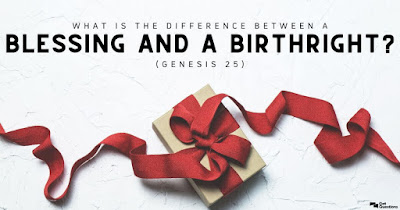Jacob Meets God at Bethel
Jacob had to leave home to escape the wrath of Esau. Though Jacob didn’t deserve it, Isaac blessed Jacob before he left with the same blessing that God gave Abraham that his descendants would be numerous and they would receive the promised land of Canaan. Isaac told him not to marry a Canaanite woman, but to go to Paddon Aram to the house of his mother’s brother, Laban and to take a wife there.
Esau learned that Isaac had blessed Jacob and was told not to take a Canaanite as a wife. Esau realized how displeasing the Canaanites were to Isaac so he tried to please his father by not marring a Canaanite. Instead he married a woman from the family of his uncle Ishmael. This was his second marriage. He really didn’t understand God’s plan. Maybe he didn’t want to understand.
Jacob probably felt guilty by cheating his brother. He lied to his old blind father and used the name of God and even kissed him in his deception. In spite of all that he was sent off with the true spiritual blessing from his grandfather, Abraham. Now he is on his own facing an anxious and uncertain future. God begins working on Jacob.
Jacob traveled east to the region where his mother Rebekah was raised. He had no money and no friends. He slept outside with no comforts of home and used a stone as his pillow. During his journey he had a dream where God spoke to him. This was a life-changing experience for Jacob. In his dream he saw a latter going up to heaven with angels going up and down. Above it stood the Lord, “I am the Lord, the God of your Abraham and the God of Isaac. I will give you and your descendants the land on which you are lying. Your descendants will be like the dust of the earth…..All peoples on earth will be blessed through you and your offspring. I am with you and will watch over you where ever you go, and I will bring you back to this land. I will not leave you until I have done what I have promised.” – Gen. 28:13-15.
He understood this dream as God breaking into his life. He saw there was access to heaven which made God closer than ever before. In John 1:51, Jesus made it clear that He was the access to heaven. “I tell you the truth, you shall see heaven open, and the angels of God ascending and descending on the Son of Man.” It’s through Him that heaven comes down to us and by which we can go to heaven. Jesus is the ladder. “I am they way and the truth and the life. No one comes to the Father except through me.” – John 14:6. God gave the same promises that He had given Abraham and Isaac. Can you imagine how those words must have hit Jacob after all he had done?
God always deals with us in grace. When He breaks into your life, it’s not your doing, it’s His. He is the initiator and comes to you. He chose you. It’s up to you to reject or accept Him.
God doesn’t say a word about Jacob’s failure. Instead He assured him about his future. Jacob promised that he, too, would serve God. That’s why we call God the “God of Abraham, Isaac and Jacob”. Jacob really wanted this blessing even though he used wrong methods to get it. God gives His blessings where He wants and to whom He wants. We cannot earn it.
Principle: God meets us where we are and leads us to Himself.
Jacob got up in the morning and took a pillar of stone and poured oil on it. He worshipped God and called that place Bethel and then made a vow to God. (Gen. 281:20-22) Some think he didn’t really understand God’s grace and made a conditional vow to God in response when he said, “If God will be with me and will watch over me…” – Gen. 28:20. Others say the “If” mean “Since” God is doing this for me, I will do this for Him. God’s promises to Jacob were all unconditional. Even if Jacob was making a conditional vow, God didn’t take His promises back. God let His promises stand and kept working on Jacob. Thank God He deals with us on unconditional terms.
Was Jacob acting immature? Was he trying to bargain with God? He doesn’t act like he’s aware of any of his sins, let alone confess them. It almost sounds like his focus is on himself and not on God. Maybe he’s bargaining like he did with Esau to get his birthright. I think he should have responded with praise and thanksgiving.
Some say Jacob put too much emphasis on the particular place. For God to fulfill His promises to Jacob and to us, God had to be in every place.
Jacob promised to tithe in Gen. 28:22. Jacob’s offering to tithe is his way of accepting the Lord’s Kingship over him. He had faith that God would supply and that he vowed to be loyal and submit to the Lord as his King and God. Tithing of income for Christians is a way of demonstrating our allegiance, our love, and that we serve God rather than money (Matt. 6:24). All we have is God’s anyway. It’s an indicator that we trust God and are committed to Him. So it was for Jacob.
Join me here next week for the next chapter in Genesis. -- I encourage you to trust in Jesus.
__________________________________________
If you have enjoyed my post and have found if helpful, please leave a comment or share this post with the buttons below.
You can follow this blog by clicking "Subscribe by Email". If you follow by email, you will receive an email every time there is a new post.


